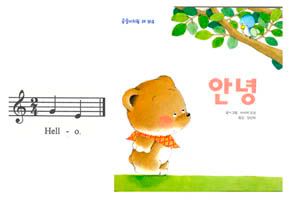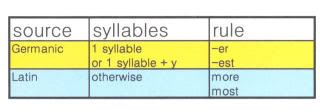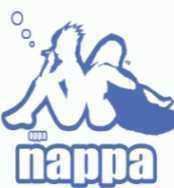

|
Korean Job Discussion Forums
"The Internet's Meeting Place for ESL/EFL Teachers from Around the World!"
|
| View previous topic :: View next topic |
| Author |
Message |
tomato

Joined: 31 Jan 2003
Location: I get so little foreign language experience, I must be in Koreatown, Los Angeles.
|
 Posted: Sun Mar 26, 2006 5:09 am Post subject: What did YOU learn in education class? Posted: Sun Mar 26, 2006 5:09 am Post subject: What did YOU learn in education class? |
 |
|
From time to time, someone decries the lack of "trained and qualified teachers."
I am trained and qualified officially, but does it really make a difference in my job performance?
I made a list of facts and concepts which I learned in the university and which I apply in the hagweon, and this is what I can come up with.
Read and decide for yourself:
■ sign language

Meet Dr. James J. Asher. He is the founder of a marvy method known as Total Physical Response (TPR). He and his devoted followers claim generous benefits from saying "I am running" while they are running and "I am jumping" while they are jumping.
That takes care of verbs, but what about other parts of speech? I can't find anything in their advertising propaganda that deals with nouns or adjectives.
So I came up with the idea of learning sign language concurrently with learning a foreign language. I ordered a Japanese sign language dictionary. Then I devised an experiment measuring sign language against interlingual puns. For example, the Japanese word for "octopus" is tako. Half of the subjects made the sign for tako:

and the other half saw a picture of an octopus enjoying a Mexican snack:
The two groups came out about even.
Now I employ sign language both ways:
I teach American Sign Language and I study Korean Sign Language.
■ stylized speech intonation
This idea came not from the textbook, not from the professor's lectures, but from my term paper for Sociolinguistics class. I wanted to see if stylized spoken intonation follows the pentatonic scale (do, re, mi, so, la).
I concluded that it uses do, mi, so, and la, but not re.
I often take out four plastic conduit pipes cut to these pitches and pass them out to four students. Each student plays the pipe by hitting it on one end. While the students supply the instrumental accompaniment, I sing:

■ adapting picture books for musical activities
Ever heard of Kindermusik? That's a canned preschool music curriculum. If you go through their training program--and pay them enough money, of course--you get to open preschool music classes and advertise using their logo.
I went through their training program so I could add a line to my resume.
Oddly enough, the only thing I learned was an item which was not in the official curriculum.
Rather, it was the training teacher's own idea. She brought in a picture book about a doorbell and asked one of us to play "ding dong" on two bells every time the text in the book said "ding dong."
As soon as I got back home, I went to the local library and made a list of musically adaptable picture books.
I have continued my search here in Korea, too.
I have found three or four cute little books in which animals greet each other.

What did YOU learn in education class?
Last edited by tomato on Thu Jun 28, 2007 9:51 am; edited 6 times in total |
|
| Back to top |
|
 |
Ya-ta Boy
Joined: 16 Jan 2003
Location: Established in 1994
|
 Posted: Sun Mar 26, 2006 5:17 am Post subject: Posted: Sun Mar 26, 2006 5:17 am Post subject: |
 |
|
Just off the top of my head, I learned:
a) a lot about classroom management
b) how to write a decent test
c) how to write objectives
d) how to write lesson plans
e) that ed teachers are probably the worst teachers on the faculty |
|
| Back to top |
|
 |
jajdude
Joined: 18 Jan 2003
|
 Posted: Sun Mar 26, 2006 6:21 am Post subject: Posted: Sun Mar 26, 2006 6:21 am Post subject: |
 |
|
| Except for one or two cool instructors, and a few jerks, I learned very little from the Education department. Sociology, Philosophy, Psychology, History.... of education? What a load of nonsense. I have learned more from a song. |
|
| Back to top |
|
 |
susmin
Joined: 04 May 2003
|
 Posted: Sun Mar 26, 2006 2:45 pm Post subject: Posted: Sun Mar 26, 2006 2:45 pm Post subject: |
 |
|
| Well, I got my master's in TESOL and actually learned quite a bit that I have used in my classes. I had to design several lesson plans that I have used. I learned different methods that are useful. (BTW you can do a lot with TPR, not just verbs.) Knowing the International Phonetic Alphabet is not particularly helpful, and some of the theories that have already been discarded is not useful either. I would have to say though that I am glad I went through the program and it has made me a better teacher. Maybe many teacher ed programs deal more in theory than practical use, but this program was quite good. |
|
| Back to top |
|
 |
ThePoet
Joined: 15 May 2004
Location: No longer in Korea - just lurking here
|
 Posted: Sun Mar 26, 2006 5:22 pm Post subject: Posted: Sun Mar 26, 2006 5:22 pm Post subject: |
 |
|
The five things I learned from education class were:
1. That there is a huge debate that still runs through every class that tries to decide whether teachers are born, or made.
2. There will be a teacher shortage soon...so we will all hae our pick of jobs (I graduated in 1993 and never did get my pick of jobs, and as near as I can figure, there are still a glut of teachers n the market).
3. The Manitoba school question basically increased the cost of education in Canada by a factor of 1.5... For those of you who don't live in Canada, the Manitoba school question was debated hotly by Canada's parliament in the late 1800's, and it was decided that there was to be both a publicly funded protestant AND catholic school system. The highest population (either protestant or catholic) would be the "public school board" and the other would be considered the "secondary school board.
4. The Enterprise system of education was great and an amazing idea, that fizzled out in Alberta just before WWII because parents wanted more time spent on the 3 R's and less time on new fangled ideas.
5. According to Piaget, there are roughly 6% of the students who are great learners. they will learn no matter how good or poor the lesson plan, they will learn no matter how strong or weak the teacher is. On the other end of the scale, there are roughly the same percentage who will not learn, no matter how good the lesson plans or teacher...you could be superteacher and employ multiple learning systems and the students still will not grasp the concepts. And in between those two extremes, are students who will learn more or less successfully, based on which teaching strategy you use. Bloom stated there were three main teaching realms that can facilitate learning -- they are the cognitive, psychomotor, and affective. By using them in combination, your teaching can be very effective.
And thats what I learned in my Bachelor's degree education classes.
Poet |
|
| Back to top |
|
 |
tomato

Joined: 31 Jan 2003
Location: I get so little foreign language experience, I must be in Koreatown, Los Angeles.
|
 Posted: Thu Nov 01, 2007 5:04 am Post subject: Posted: Thu Nov 01, 2007 5:04 am Post subject: |
 |
|
In History of the English Language class, I became more conscious of word origins.
I noticed that most of the humble everyday words are of Germanic origin and most of the pompous and sophisticated words are Latin borrowings.
When I began to study Korean, I noticed that the same generalizations held true for native Korean words and Chinese borrowings, respectively.
That means that when one translates from one language to the other, the Germanic and native Korean words tend to correspond and the Latin borrowings and the Chinese borrowings tend to correspond.
One of classes uses the Reading Expert series.
Every week, they have to learn a list of words.
In order to reduce the boredom of the task, I go down the list and ask them to guess which words are German and which are Latin.
The class is long past the see-Spot-run level, so most of the words are Latin.
Another of my classes is studying adjectives.
The Side by Side series makes a list of adjectives which take -er and -est for comparative and superlative and another list of ajectives which take more and most, but it doesn't say why.
I draw a chart on the board which looks like this:

The first column I figured out in History of the English Language class.
The second column I learned on another thread on this forum.
Occasionally we run across a word which doesn't fit the same line in all three columns, but not very often. |
|
| Back to top |
|
 |
Roch
Joined: 24 Apr 2003
Location: Seoul
|
 Posted: Thu Nov 01, 2007 5:11 am Post subject: Posted: Thu Nov 01, 2007 5:11 am Post subject: |
 |
|
| jajdude wrote: |
| Except for one or two cool instructors, and a few jerks, I learned very little from the Education department. Sociology, Philosophy, Psychology, History.... of education? What a load of nonsense. I have learned more from a song. |
I betcha you deserve a very big Word-up.
So, in anticipation of many typing the word, I'll just pre-empt them by typing, yet, yet, again: "Word!"
Pass the tequila, Sheila, ya Hosebag Liberal.
Got Screech?
R |
|
| Back to top |
|
 |
Snowmeow

Joined: 03 Oct 2005
Location: pc room
|
 Posted: Thu Nov 01, 2007 6:54 am Post subject: Posted: Thu Nov 01, 2007 6:54 am Post subject: |
 |
|
My certification is for grades 7-12
My general B.Ed classes heavily emphasized awareness of learning disabilities, special needs, a lot of the procedures involved in assessment, processing etc of students with difficulties.
Class management was definitely stressed although I don't think my instructor was effective in teaching it.
Psychology of learning was one of my courses but most of the course was nothing new to the students - theories brought up many times before in other classes about different learning styles and so on.
The class about literacy was taught very well and the text was excellent. It's somewhat applicable to ESL in Korea.
The most useful classes were the ones in specific subject areas e.g. for me, math and science. In those classes the professors gave us an enormous amount of material to help us make our lessons interesting and stressed the importance of student discovery in learning. Also information about curriculum guidelines and standardized testing
I don't know how much of it all is relevant to teaching English in Korea. I believe the teaching cert primarily teaches you to work in the school system at home. |
|
| Back to top |
|
 |
Hyeon Een

Joined: 24 Jun 2005
|
 Posted: Thu Nov 01, 2007 9:33 am Post subject: Posted: Thu Nov 01, 2007 9:33 am Post subject: |
 |
|
| tomato wrote: |
In History of the English Language class, I became more conscious of word origins.
I noticed that most of the humble everyday words are of Germanic origin and most of the pompous and sophisticated words are Latin borrowings.
When I began to study Korean, I noticed that the same generalizations held true for native Korean words and Chinese borrowings, respectively.
That means that when one translates from one language to the other, the Germanic and native Korean words tend to correspond and the Latin borrowings and the Chinese borrowings tend to correspond.
|
I think you made a very interesting comparison, and I think this is the first time I've heard it. It also sounds very plausible too.
In terms of greco/roman words in the English language a HUGE number of them came into existence in the 19th century. They were words created out of either roman or greek origin for new scientific theories, definitions, concepts or machines. They are perfectly valid words, but they did not exist in 'ancient' times. (I'm drunk so I can't give you examples right now, but check out books such as The Journey of English by Melvyn Bragg or Mother Tongue by Bill Bryson for more info)
I'm interested, are there modern Korean words made out of Chinese origins in Korean? I strongly suspect there are due to the fact that Chinese characters are like lego in the way you can combine them together. |
|
| Back to top |
|
 |
Ya-ta Boy
Joined: 16 Jan 2003
Location: Established in 1994
|
 Posted: Thu Nov 01, 2007 12:53 pm Post subject: Posted: Thu Nov 01, 2007 12:53 pm Post subject: |
 |
|
Interesting to see this old thread rise from the dead.
My school has a bunch of new teachers, most with little or no experience, so the fundamentals of teaching are on my mind a lot lately.
Three glaring shortcomings stand out:
a) A fair number of people who are using our program (which is a good program) have no idea how to think in terms of teaching objectives. The objectives are laid out in the teachers manual, but as far as I can tell, few read them and use them as a focus for examples to be used in that particular lesson.
b) I would have thought that it is common sense to strip your speaking style of idioms and complex grammar when speaking to beginners. For example, if the list of vocab words is at the level of 'bucket' and 'buckle', don't use the word 'intuitive' with your students. Chances are slim indeed that you will convey any idea at all to your students. In short, know your audience and speak to them. Wise words from some long-forgotten ed prof.
c) Draw pictures. Trite but true: a picture is worth a thousand words. The white board is there for a reason other than leaning against. Watch someone explain the difference between 'pick me up' and 'give me a ride' without using pictures. It's painful. Those are common expression students mangle all the time. It takes 3 or 4 minutes to straighten out with pictures. It takes a lot more time with poor results to do it without pictures. |
|
| Back to top |
|
 |
ddeubel

Joined: 20 Jul 2005
|
 Posted: Thu Nov 01, 2007 4:06 pm Post subject: Posted: Thu Nov 01, 2007 4:06 pm Post subject: |
 |
|
I learnt how to kiss ass, socialize and play the system.
It was drilled in my head to "be myself". First month of teaching I learnt that to be utter nonsense. You got to be anything but yourself to be a good educator - do whatever it takes, put on any mask, to get the class learning.
Tomato. Have you seen my Sign language PPT? I think you might have but here is a link to a recent blog post about it. Scroll down, its in my Lessons in a Can.
http://eflclassroom.ning.com/forum/topic/show?id=826870%3ATopic%3A10395&page=2
DD |
|
| Back to top |
|
 |
the_beaver

Joined: 15 Jan 2003
|
 Posted: Thu Nov 01, 2007 4:12 pm Post subject: Posted: Thu Nov 01, 2007 4:12 pm Post subject: |
 |
|
| ddeubel wrote: |
| It was drilled in my head to "be myself". First month of teaching I learnt that to be utter nonsense. You got to be anything but yourself to be a good educator - do whatever it takes, put on any mask, to get the class learning. |
Nice one. |
|
| Back to top |
|
 |
tomato

Joined: 31 Jan 2003
Location: I get so little foreign language experience, I must be in Koreatown, Los Angeles.
|
 Posted: Thu Nov 01, 2007 4:47 pm Post subject: Posted: Thu Nov 01, 2007 4:47 pm Post subject: |
 |
|
| Hyeon Een wrote: |
| In terms of greco/roman words in the English language a HUGE number of them came into existence in the 19th century. |
I understand that "ethnocentric" was coined in the early 20th Century.
There was no need for that word much sooner than that,
because until that time, nobody was anything BUT ethnocentric!
| Quote: |
| I'm interested, are there modern Korean words made out of Chinese origins in Korean? I strongly suspect there are due to the fact that Chinese characters are like lego in the way you can combine them together. |
There may be others, but I know of only one.
전화, which means "telephone," literally means "electricity-talk." |
|
| Back to top |
|
 |
PRagic

Joined: 24 Feb 2006
|
 Posted: Fri Nov 02, 2007 4:51 pm Post subject: Posted: Fri Nov 02, 2007 4:51 pm Post subject: |
 |
|
From the point of view of the organization looking to hire a teacher, I'd say an education degree would mean a lot. It would mean that the applicant has invested time, money, and effort into trying to learn about what it takes to educate people. It would mean that the applicant has considered teaching as a vocation. It would mean that the applicant would probably be interested in continuing education.
All this compared to an applicant with an unrelated degree in an unrelated dicipline. All this compared to an applicant who has probably not been tested and critiqued in a real classroom environment.
Teaching is like many other professions; you don't necessarily get everything you need from a B.A. The degree, however, coupled with real world experience (most wouldn't count hakwon experience) and continued education can lead to success and career satisfaction.
Getting the degree is an expression of committment, and further related degrees signify additional committment to improvement (whether or not any given individual feels that they got their value for their buck).
This is one of the primary reasons that I get confused and annoyed by people who argue that their degree type/field doesn't matter, and that they should have employment privilage based on their experience. This, many argue, should be considered in lieu of advanced degrees in a related dicipline. The same people shun professional development.
In a nutshell, and back to the point, if I were doing the hiring, I'd go with someone 'properly trained and certified' any day. |
|
| Back to top |
|
 |
Cheonmunka

Joined: 04 Jun 2004
|
 Posted: Mon Nov 05, 2007 3:17 pm Post subject: Posted: Mon Nov 05, 2007 3:17 pm Post subject: |
 |
|
| Quote: |
■ stylized speech intonation
This idea came not from the textbook, not from the professor's lectures, but from my term paper for Sociolinguistics class. I wanted to see if stylized spoken intonation follows the pentatonic scale (do, re, mi, so, la).
I concluded that it uses do, mi, so, and la, but not re.
I often take out four plastic conduit pipes cut to these pitches and pass them out to four students. Each student plays the pipe by hitting it on one end. While the students supply the instrumental accompaniment, I sing:
|
This ... is fantastic.
I want to learn more. |
|
| Back to top |
|
 |
|
|
You cannot post new topics in this forum
You cannot reply to topics in this forum
You cannot edit your posts in this forum
You cannot delete your posts in this forum
You cannot vote in polls in this forum
|
|

